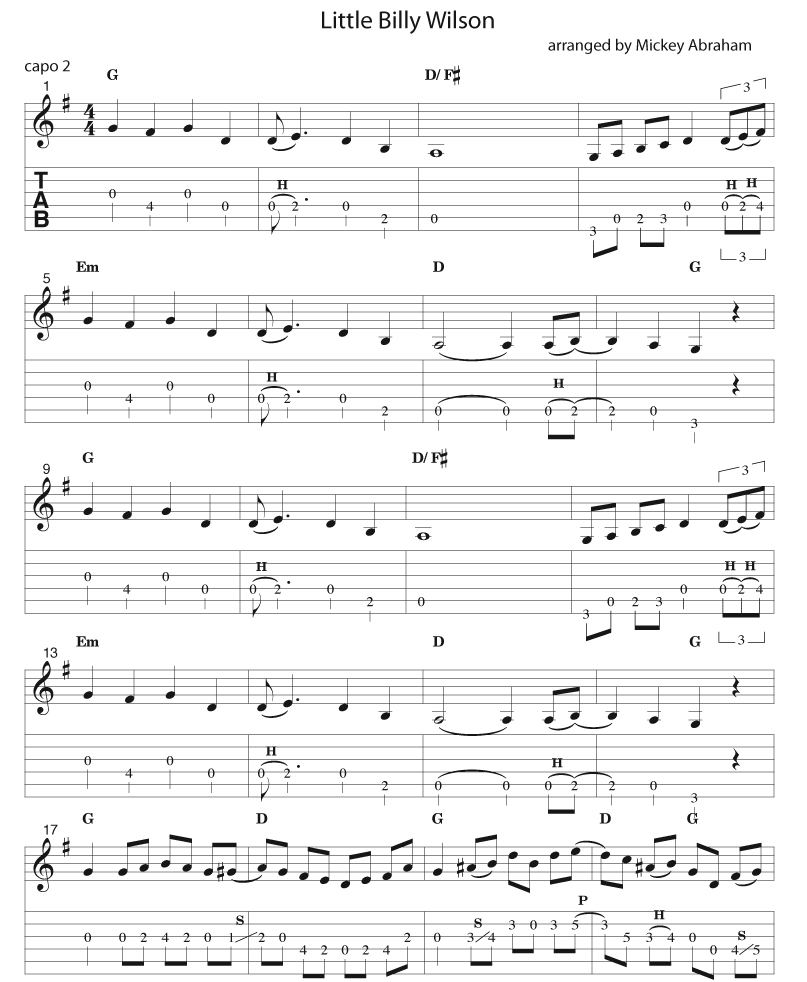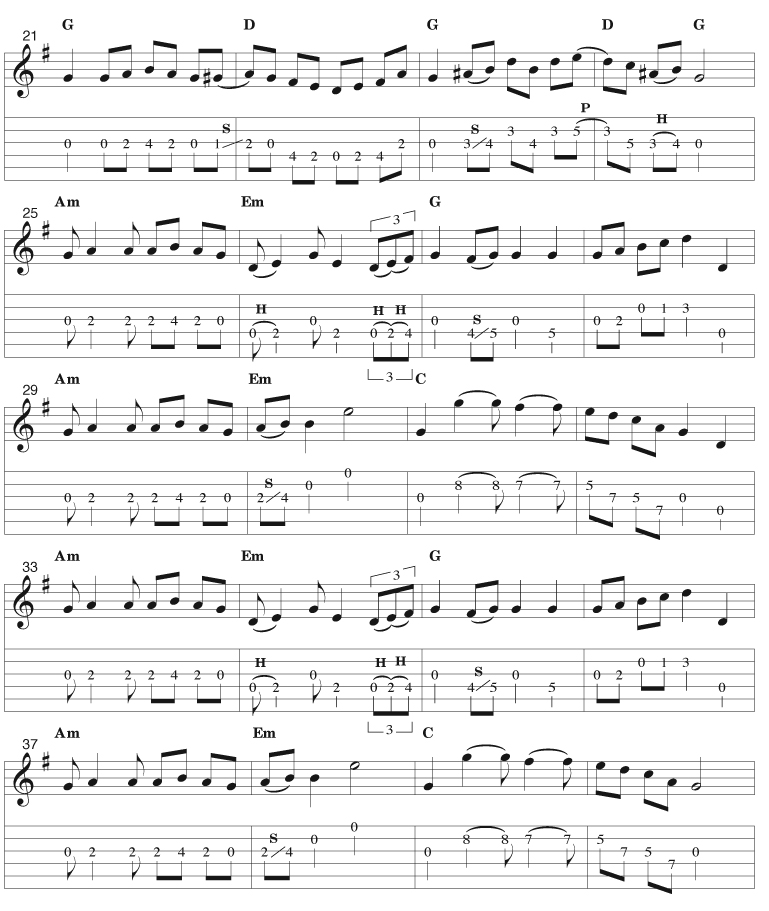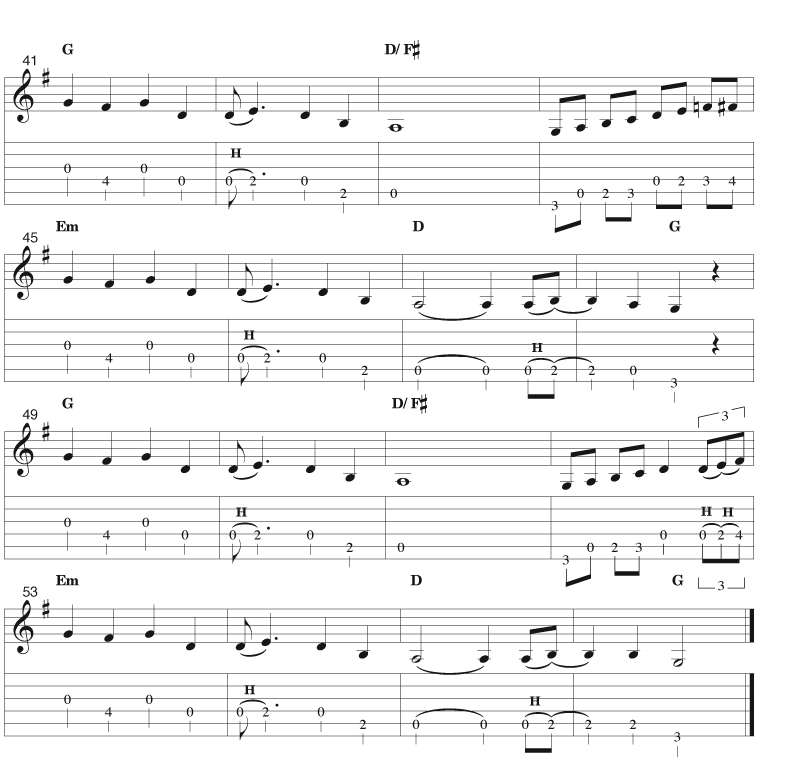|
July 2009 Free Flatpicking Lesson
from
Flatpicking Guitar Magazine
"Little Billy Wilson"
Hello and welcome to FGM’s free lesson portion of our
monthly newsletter. This month I offer a wonderful old-time fiddle
tune “Little Billy Wilson.” I learned this great tune from my
band-mate and friend, Aaron O’Rourke. I enjoy learning tunes from
Aaron because he, as a mountain dulcimer player, interprets tunes
different than a flatpick guitarist would.
Learning melodies from
other instruments is a great way to ensure a creative guitar
arrangement -- I know that I am not tapping into another guitarist’s
arrangement because I have never heard another guitar arrangement. As
far as I know, Tony Rice never recorded “Little Billy Wilson.” I asked
Aaron where he learned this tune and he said, “I’m not sure, I learned
this tune a long time ago.”
I chose this tune because
of its catchy melody and interesting chord accompaniment, but also for
its lack of popularity. When I come across great tunes that are not
among the standards, I try to do my part in spreading them around.
There are so many great tunes that don’t get played nearly as much as
they should (and perhaps weaker melodies that get played way too
much.)
“Little Billy Wilson”
is a three part fiddle tune in the key of A. I tried arranging it in
open position (without a capo) but I feel, as a whole, the tune plays
better out of G position with a capo on the second fret. I always
learn something new about the guitar fretboard by trying to arrange
tunes in different keys and I often find something intriguing in each
version. Some phrases play better out of certain keys while other
phrases become more difficult. I try to take into account the song as a
whole and pick one position that will make the melody happy!
The “A” section of the
tune is your typical eight measure section that is repeated. The “B”
section is only four measures long (half the length of most fiddle
tunes). In Irish music they often call tunes with four measure
sections half reels. Then, the “C” section returns to an eight measure
section. Don’t forget to listen to the mp3 to hear how all three parts
work together. On the lesson recording I returned back to the “A”
section at the end. I enjoy how the chords on the “C” section don’t
resolve to the I chord (G). This lack of resolution is why I chose to
play the “A” section again. To me, this gives the arrangement melodic
bookends.
If you have any questions, comments, or concerns on this e-lesson or any ideas for future lessons drop me a line at [email protected].
I hope you enjoy learning to pick “Little Billy Wilson” and then
passing it onto your picking buddies. Doesn’t everyone enjoy a new
old-time tune!



|